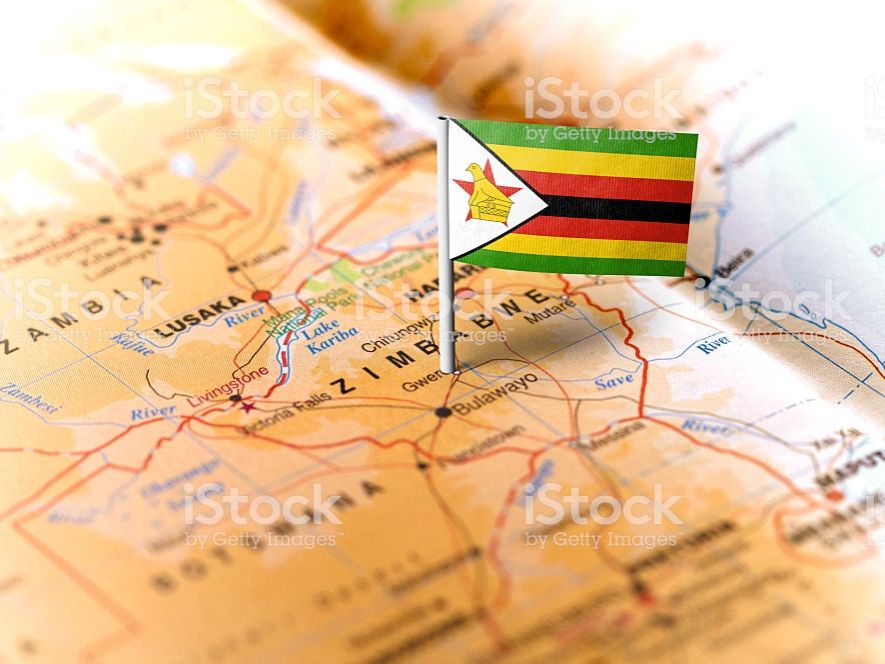Loved and hated in equal measure? The religio-political legacy of Robert Mugabe
Date:06 September 2019Author:Joram Tarusarira
On the death of former President of Zimbabwe Robert Mugabe, CRCG Director Dr Joram Tarusarira reflects on his life and legacy.
Tradition and Contestation: Orthodoxy and Gender in Contemporary Greece
Date:20 August 2019
Mount Athos, which hosts an all-male Eastern Orthodox monastic community, is famous for an 11th-century decree banning women from entering the territory. In this post, Eline Westra examines how a disputed status quo has stood the test of time and how the new Prime Minister, Kyriakos Mitsotakis, in his embrace of conservatism, is unlikely to change that.
Legislative Catharsis, Part Two: A Primer on Québec’s Veil Bans for Europeans
Date:29 May 2019Author:Muhammad Velji
The Canadian province of Québec is currently debating Bill 21, “an Act respecting the laicity [secularity] of the State," which would ban certain public officials from performing their duties while wearing religious symbols. Although it has been widely criticized as an attack on Québec's Muslim population, the Bill retains significant public support. In the second of this two-part primer, philosopher Muhammad Velji explains how the rationale behind such a ban switched from the logic of “civic-pluralism” to a more reactionary “romantic-conservatism.”
Legislative Catharsis, Part One: A Primer on Québec’s Veil Bans for Europeans
Date:22 May 2019Author:Muhammad Velji
The Canadian province of Québec is currently debating Bill 21, “an Act respecting the laicity [secularity] of the State," which would ban certain public officials from performing their duties while wearing religious symbols (and would require those seeking public services to do so with their faces "uncovered.") Although it has been widely criticized as an attack on Québec's Muslim population, the Bill retains significant public support. In this two-part primer, philosopher Muhammad Velji explains how such "veil bans" came to be thinkable in contemporary Canada, starting with the "Quiet Revolution" of the 1960s.
Drunk History (of Chinese Religions)
Date:24 April 2019Author:Tim Swanger
What can efforts to translate “alcoholic drink” (jiu 酒) from Chinese to English teach us about the category of religion? A surprising amount, argues Tim Swanger.
#exMuslimBecause: Popular Terminology Among Islam’s Non-Believers
Date:01 March 2019Author:Maria Vliek
What is at stake in the terminology of (non)belief? Drawing on recent fieldwork with former Muslims in the Netherlands and Great Britain, Maria Vliek reflects on the politics of declaring oneself 'ex-Muslim.'
Sanctuary and Public Space: Church Asylum and Kinderpardon in the Netherlands
Date:08 February 2019Author:Christoph Grüll
What does a 97 day church service have to do with the power of the state? Christoph Grüll reflects on compassion, justice, and the meaning of sanctuary.
Settler Similarity and the Science of Difference
Date:07 January 2019Author:Tyler Tully
What can DNA tell us about our "identity," and - more significantly - what can't it? In our first blog post of 2019, Tyler M. Tully reflects on the relationship between DNA testing, settler-colonial norms, and racial apartheid in the United States and beyond.
When is a Psychic or a Witch a Fraud?
Date:03 December 2018Author:Susannah Crockford
Does witchcraft, fortune-telling, or psychic healing constitute fraud, and (when) should the law step in to regulate these practices? Drawing on fieldwork with psychics in Sedona, Arizona, Dr Susannah Crockford considers recent witchcraft cases in Canada and the United States to argue against the framing of certain religious practice as inherently fraudulent.
The Shadow of Colonialism: Indigenous Rights in a Human Rights Framework
Date:12 November 2018Author:Januschka Schmidt
This December, the Universal Declaration of Human Rights celebrates its 70th anniversary. Despite its achievements, we must not forget that the concept of human rights still has limitations. One aspect that needs further discussion is the protection of the rights of Indigenous peoples within its framework. In today’s post Janushcka Schmidt wants to argue that, to make human rights genuinely inclusive, we must not only protect rights by law (de jure) but also safeguard their application in practice (de facto).











